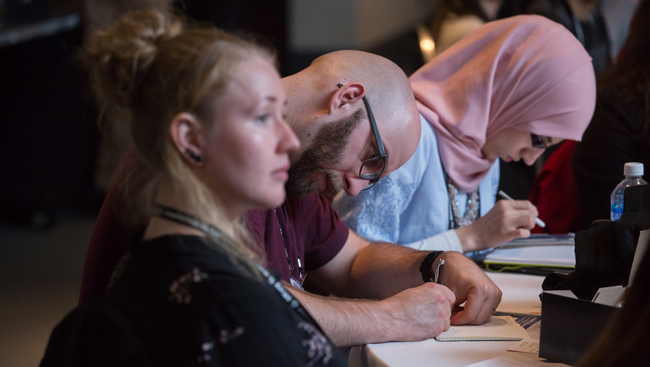
Being offered an interview is often the rate-limiting step of the admissions process, and the wait can be nerve-racking. As you wait to hear back from your top choice schools and programs, here are the important considerations to weigh.
Before You Accept an Interview:
- Prioritize your level of interest in each program. There could be conflicting interview dates, with some programs offering no alternates. It’s important to consider how likely you are to accept an offer from a program if an offer is made before you commit to interviewing for the program.
- Respond promptly and professionally. While the program is certainly interested in you at this point, remember: You are still a candidate in the admissions process.
- Identify a list of faculty members with whom you’re interested in interviewing. Many programs will ask you for this list ahead of time. Make sure to balance faculty members based on your current research experience and interests (it will be easier to discuss your work with someone in your current field) and future scientific interests (this will give you a glimpse into fields you’d like to explore).
Once your interview and travel schedule has been finalized, it’s time to prepare for the interviews. While the days prior to your first interview weekend may seem overwhelming, take a deep breath and remember how far you’ve made it. Depending on the program, post-interview acceptance rates vary from 50-75 percent.
During the Interview Weekend:
- Know which faculty members with whom you’ll be interviewing and take the time to understand their research. You’ll likely receive an itinerary before you arrive. It’s helpful to read one or two recent papers from each faculty member to give you a better picture of their lab’s focus areas. This preparation also shows you did your homework.
- Dress according to the weather. Business casual is often the standard, but if you know you’ll be walking back and forth across a large campus in snow, have appropriate attire.
- Reread your application materials. Your interviewer will likely have read your application, so their questions will primarily be derived from what you submitted. Some topics of discussion can include: how you got into science, the type of research you’ve done and what you would like to do, and why you want to earn a PhD.
- Prepare to address any areas of potential concern on your application. Voicing you’re aware of areas of improvement shows immense maturity and preparation. Though, in all likelihood, most interviewers aren’t out to get you. Rather, they just want to get to know you and your professional goals.
- Be courteous and professional, even at casual events. There will likely be informal events, like dinner with current students, for example, but remember you are still being interviewed.
Overall, enjoy this stage of the application process. It’s a unique opportunity to spend a weekend with your potential peers and supervisors. Take the time to ask questions and interact with current members of the program to determine if this is the right fit for you.



.png?h=1763&w=3125&la=en&hash=B2439C2768576BED6405672E5CD5CF8CB1AA375F)




